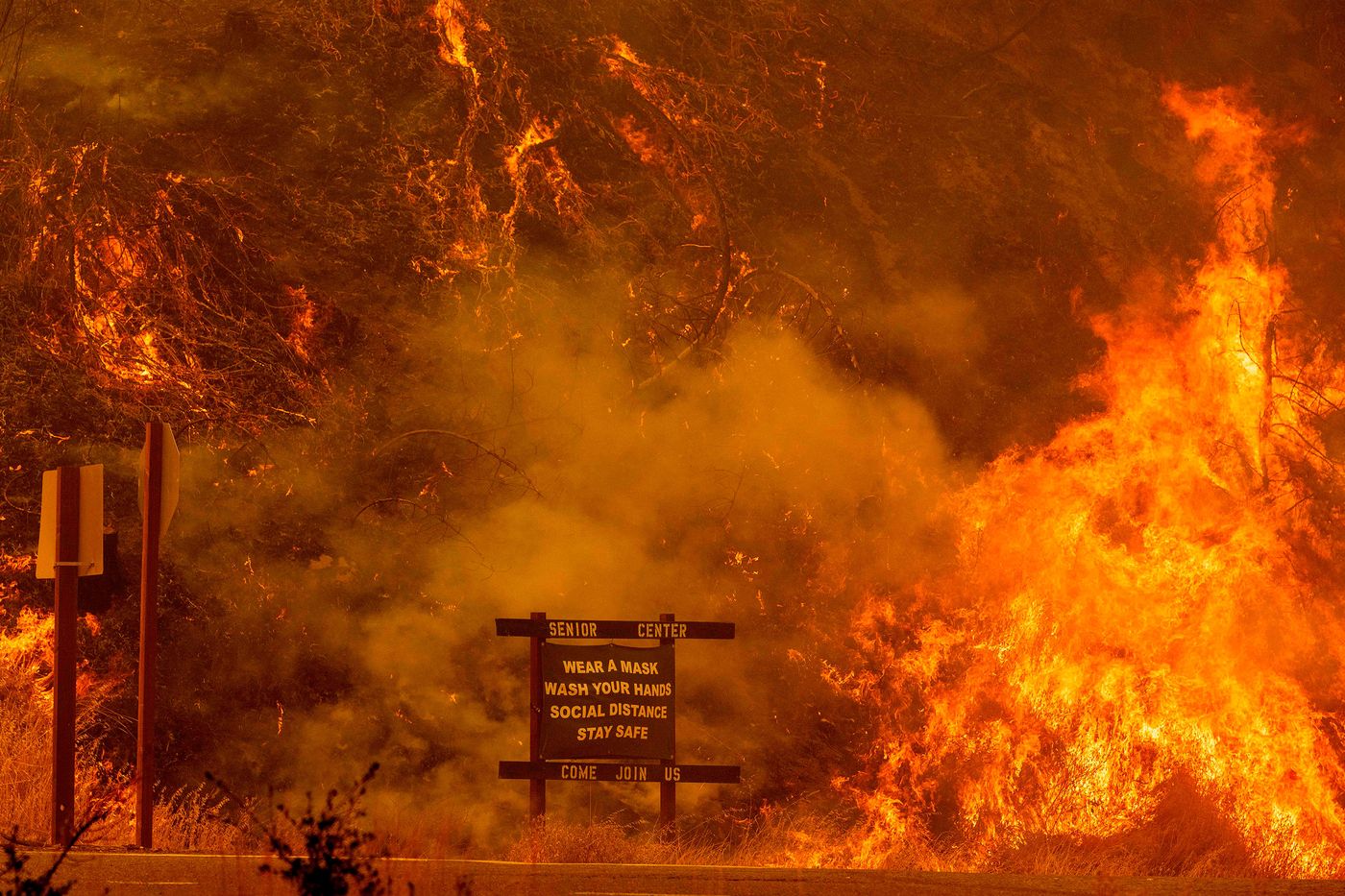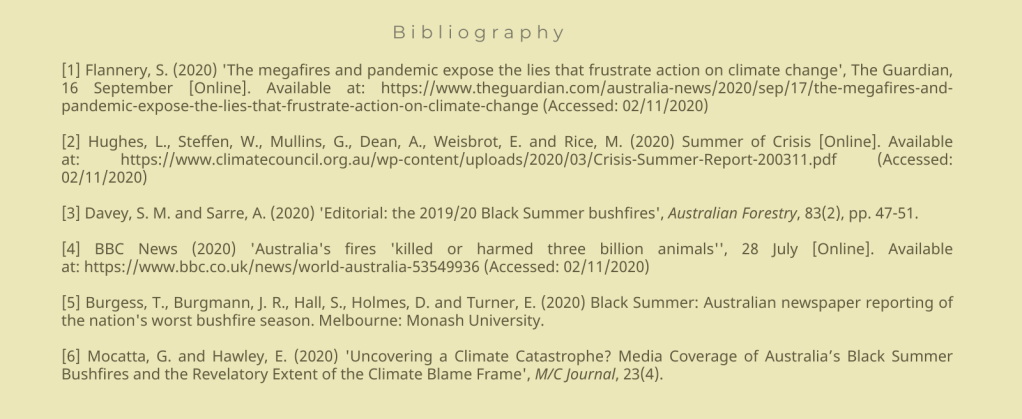When I was younger, Australia was like a boomerang for me – I was there, then I wasn’t, then I was, then I wasn’t, then I was and now I’m not. Moving back and forth so many times created an odd relationship with the country in my mind; however, at the start of 2020 when news stories were covered with a country I once considered home burning from catastrophic bushfires, I couldn’t help but worry. The following infographic outlines what happened over the 2019/20 summer in Australia.
Disasters are not natural – they are entirely human. The Black Summer had a political undertone, heightened by media representations of the disaster and the role of misinformation. It is important to explore the political ecologies that existed behind the scenes.
Misinformation
Misinformation spread through Australian media with stories suggesting that arsonists had intentionally started fires. This misrepresentation of the bushfires was proliferated by News Corp and even reached the tweeting fingers of Donald Trump. By the time research had been completed to find that only 11 of the 11,744 fires in New South Wales were started by arsonists, it was too late. Misinformation, such as this, is dangerous as it can hide and minimise the role climate change has in causing and intensifying these extreme environmental events.
Australia’s Political Ecology
When Covid-19 swept across the world, the Australian government took decisive action and acted quickly to protect the country and its population. The same cannot be said for their response to climate change. Part of this issue stems from economic factors and the potential losses the country will face as a result of declining demand for its gas and coal exports. Too many powerful people will lose out from a slowing gas and coal industry in Australia with the government making no signs to change this soon – for instance, their post-Covid-19 economic regrowth strategy is based around the gas industry.
Climate denialism is also feeding Scott Morrison’s government’s inaction towards climate change. Prime Minister Scott Morrison was criticised during the peak of the Black Summer bushfires for going on holiday to Hawaii resulting on calls for the government to further protect Australia.

Australia is not the only country that suffers in this way. In recent months, the USA has also burned. In the past year, California has had 5 out of 10 of its historically largest fires with a 27 times increase in the area burnt by fires compared to 2019. Political ecology mirrored that of Australia with President Donald Trump attributing the fires to forest management with threats of making those who manage forests in California “pay for it”. Misinformation has also run rife with claims that ‘Antifa’ was starting the fires, an idea heralded by a Republican Senate candidate. Facebook has been pinpointed as the main villain for this information by some journalists through its ability to quickly share false narratives within privately run groups with the idea of ‘Antifa’ starting the fires becoming common sense among right-wing communities.
Comparatively, fires in Australia and California are both getting longer making it increasingly difficult for fire crews to initiate certain preventive measures such as back-burning. What’s more, a usually collaborative relationship between fire crews in the USA and Australia will become increasingly strained as fire seasons begin to overlap making it more difficult to share resources, consequently, reducing the potential to limit damages. This means that more preventive measures are necessary – including immediate climate action and a change in the viewpoint of the causes of these fires. Usually, I would now give a ‘hopeful view’ of the situation at hand but as it is 17:02 (GMT) on 04/11/2020 the world is still anticipating the outcome of yesterday’s US election. Once the result is in, I will return here to give my final thoughts.
08/11/2020
Yesterday, Joe Biden won the 2020 US Presidential Election. This – more than the alternative result – provides us with some hope (hopefully). With plans for decisive climate action, including rejoining the Paris Agreement, Joe Biden’s win provides hope not only for the USA’s environmental wellbeing but for the whole world due to the US being the second-highest CO2 emitter (in 2018). A change in leadership is not the be-all and end-all of climate hardship, but it can undoubtedly make a difference and provide our future with some hope. Therefore, we can hope that the Black Summer will not repeat and will not become the ‘new normal’. Whilst there’s still a lot of work to do, yesterday’s result left me feeling more positive, what about you?





One reply on “Black Summer repeats – the new normal?”
[…] | Abolishing the cultural hegemony of the carceral state | Thought for food, food for thought | Black Summer repeats – the new normal? | Feminist Geographies of Dance | TMAY Day, Year 3 | Frankenstein’s Outer Space Monster | Water […]
LikeLike